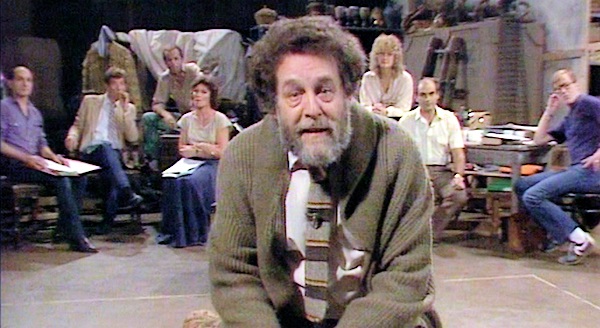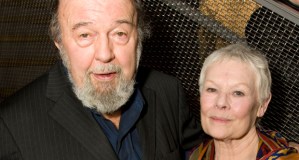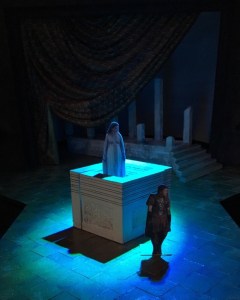John Barton made the entire idea of Shakespeare study seem strangely glamorous
RSC co-founder John Barton has passed away at the age of 89

sad to hear of JOHN BARTON’s death. he was a visionary: pragmatic & wry, but fierce in striving for theatre that was genuinely intelligent (emotionally, conceptually, formally) & alive.
his legacy, esp. in classics in verse, is inestimable. we don’t make them like him any more.
— Robert Icke (@robertwicke) January 18, 2018
We certainly don’t. I am not sure I have seen a single production by Barton – his directing height predates my obsessive theatre-going – but thanks to the 1982 TV series Playing Shakespeare, I feel I knew his importance. There this great shambling bear of a man, with wild hair and a fuzzy beard, and a massive woolly cardigan, illuminated Shakespeare and his plays in a way that not a single teacher I had at the time had managed to do.
Barton made the entire idea of Shakespeare study seem strangely glamorous
It was riveting stuff, that series. Nine parts made by a commercial TV station, LWT. Imagine that! Because that’s another thing we don’t do anymore: give huge chunks of mainstream TV time over to arts television that simply asks you to watch, listen and absorb. I watched it for the actors – Roger Rees, Alan Howard, Peggy Ashcroft, and Ian McKellen among them – and stayed hooked by its wonderful cross between serious scholarship and a glimpse of backstage life.
Barton made the entire idea of Shakespeare study and the discovery of the meaning of each line seem strangely glamorous. Conversations devoted to understanding art were exciting and inspiring. Acting seemed a noble profession. Though the setting was workaday and Barton’s tone was rather like that of a benign professor in an extended tutorial, the result was enlightening. As the actors discussed how to present the plays, and tried out different ways of saying the lines, Shakespeare came to vivid life.
Barton’s argument was broadly that Shakespeare invented both in-depth characterisation and naturalistic speech and that understanding how to speak the verse unlocks the play. It’s all available on YouTube and, to me, utterly riveting still despite the period clothes and the rather brown setting.
Sometimes directors and performers strangle the life out of classic plays by looking so hard for a new way of doing them
What I really notice now is Barton’s enthusiasm; he just sweeps you along. It’s this energy, this passion that is so valuable. It’s what all theatre needs. I’m not surprised that Icke is an admirer; his revelatory productions of Mary Stuart and Hamlet have been based on precisely the close reading of the text that Barton advocates. Yet sometimes when they are reviving classic plays directors and performers are looking so hard for a new way of doing them that they force meaning into them. They strangle the life out of the thing by clothing it in concept.
Barton never made that mistake. He knew there were infinite possibilities of interpretation but they had to spring from what was on the page. He knew too, that the audience was as important as the players – that if they are bored or uninvolved then there’s no point. Acting and directing are about making characters and words real for the people sitting out there in the dark. As Greg Doran recalled in his tribute to Barton, when he started to make a list of the golden rules that he wanted to communicate, he said it should not be called "How to Speak Verse" but "How to Make an Audience Listen."
A man who cared so much about the precision of language knew exactly the difference between arid scholarship and involving drama. We may not make them like Barton anymore, but the lessons he taught are as valuable now as they ever were.




















